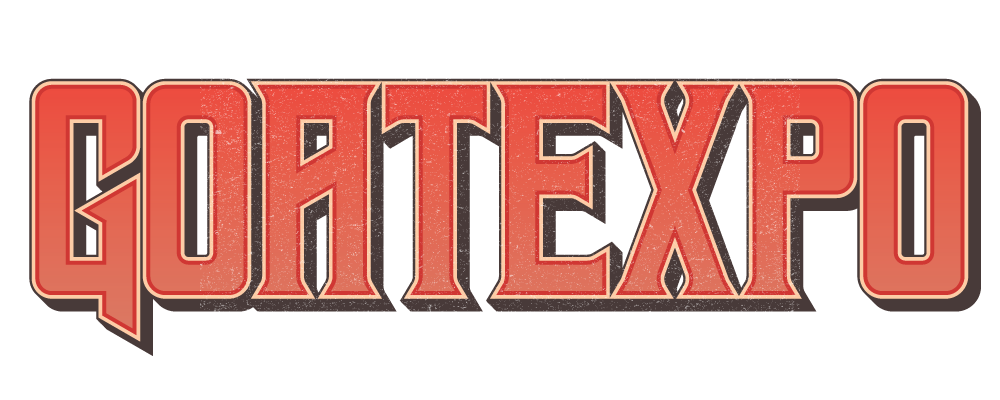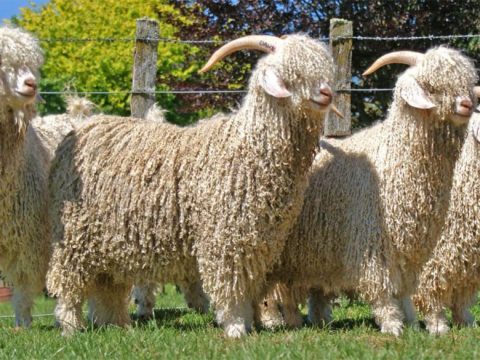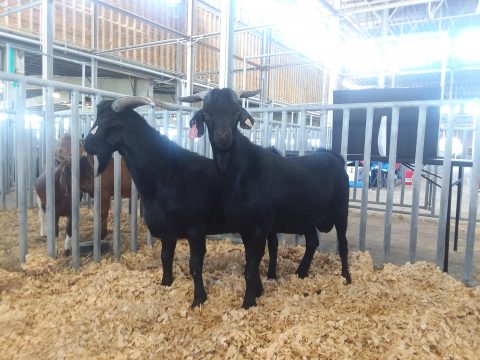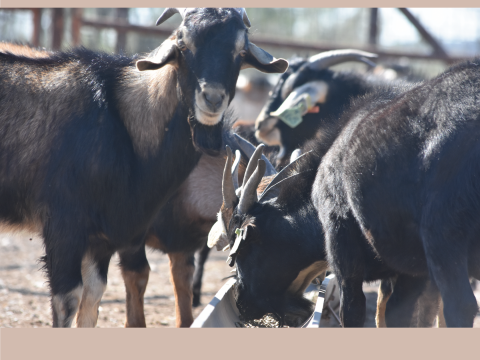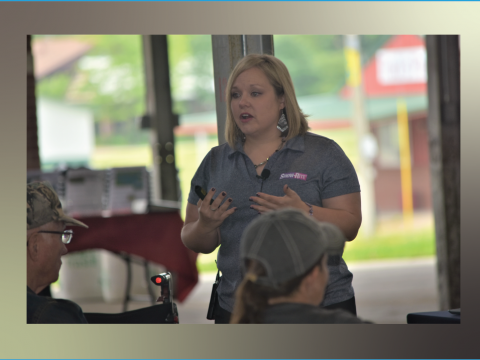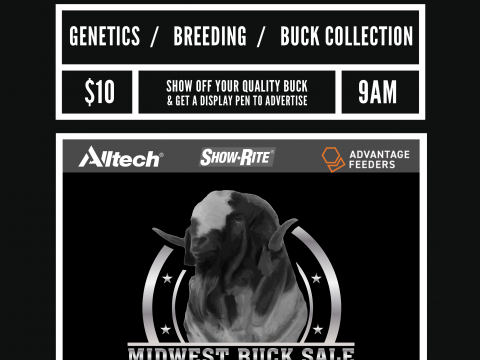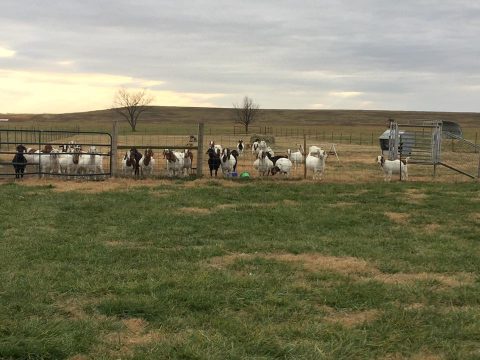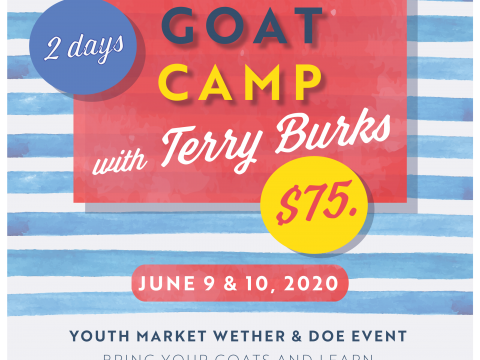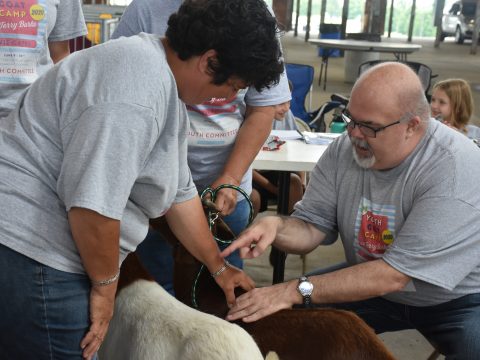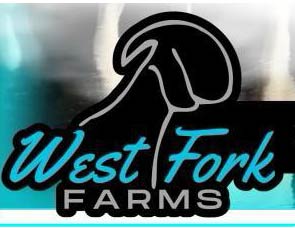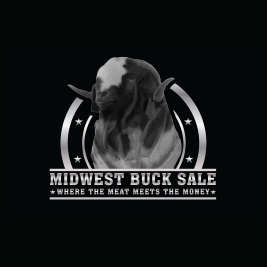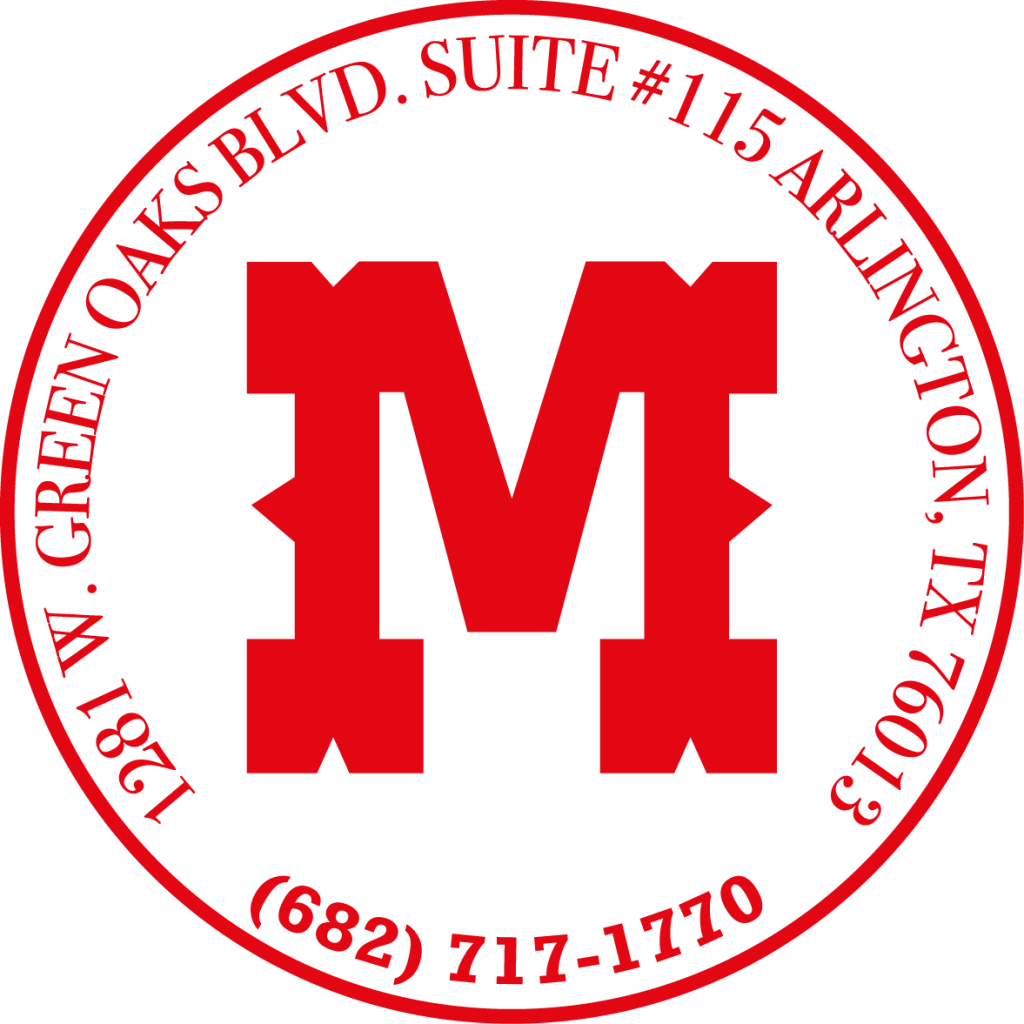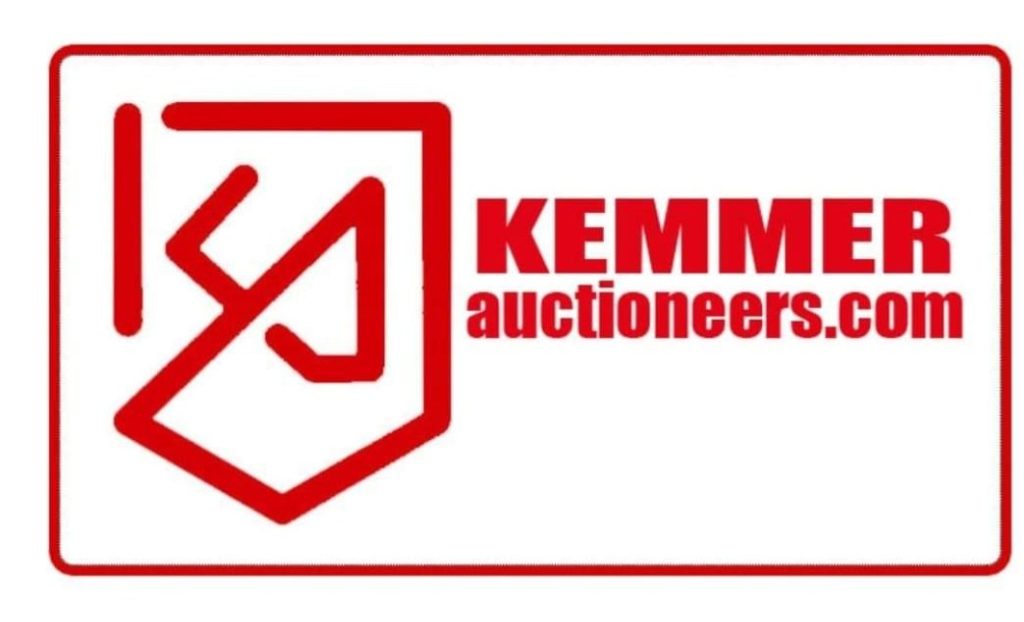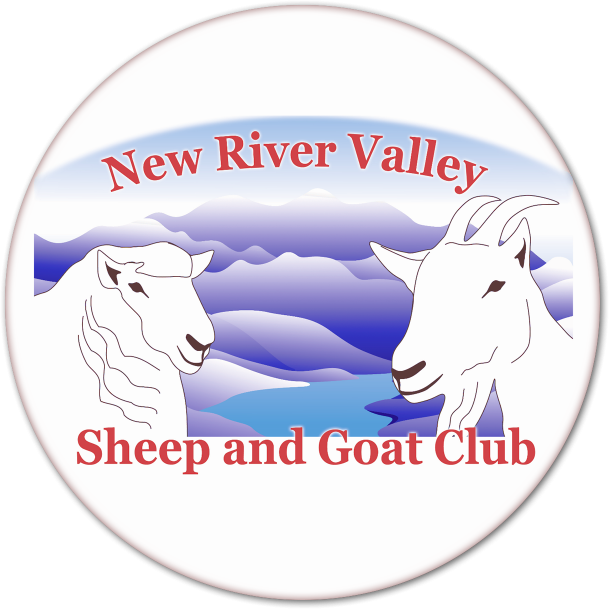
Encouraging and Supporting the Goat Industry in the Appalachian Mountains
Second Blog Post
The Midwest Buck Sale has kindly allowed us to blog a series of posts to describe The New River Valley Sheep and Goat Club, and what is does, in case this may be useful information to inspire other farms and producers around the country.
The New River Valley Sheep and Goat Club (the Club) is a network of sheep and goat farmers dedicated to promoting, advocating for, and growing the number of sheep and goats in the mountains of rural Southwest Virginia, and by popular demand, has expanded to include nearby farms in North Carolina, West Virginia, Pennsylvania, and South Carolina. The Club was established in August of 2014 and current membership is over 160 Member Farms and over 520 individual members. The club is funded solely by its members with no paid employees. About half of the membership is composed of farms raising all varieties of goats – from dairy to fiber to meat goats.
This post will focus on how the club helps its farm members sell their animals.
Member-to-Member: One of the biggest and immediate impacts of forming the Club was members finding other members to buy from and sell to. All too often, members who wanted to expand their herd or expand into another breed were wary to buy from farms that were unknown and without good paperwork on the animals. Buying from members also creates an informal mentorship, if needed, as members want other members to be successful and are available and willing to answer questions and assist. Thousands of animals, including livestock guardian animals, have been bought and sold between members.
Club Website – Advertising: The Club created a website on February 1, 2018 with the goal of helping members reach their economic goals. The site provides free advertising space to members who want to sell their animals, farm equipment or value-added products. Club members have been contacted by buyers from all over the United States. Despite the success being experienced by those participating, the Club needs to encourage and remind members to advertise – many are not familiar with selling this way and it takes time to change behavior, even when it involves making more money. Non-members can pay to advertise.
Establishing a Club Brand at the New Holland Livestock Market: Farms in this region usually take their sheep or goats to the local livestock auction markets where they were sold at auction for pretty low prices. The stock is purchased by livestock brokers, packed into tractor trailers and head north to the New Holland Livestock Market. New Holland is the largest livestock market on the US East Coast and sheep and goats bring a much better price given the high demand for this meat in the northern cities.
The Club president, Cecil King, spoke with members and it was agreed to send a tractor trailer of livestock to New Holland in 2015. Cecil visited New Holland and spoke with the main buyers to understand what they were looking for in terms of conformation and condition in order to pay top dollar. Given the thousands of animals that pass through the sale, if the Club sent livestock meeting these prime specifications, the animals would need to stand out. The Club decided to buy and mark ear tags that would signify to buyers that these animals had been inspected by the club and were prime stock. Another reason the buyers trust the Club tags is that the animals are direct from the farm and are “fresh” – well hydrated and plump.
Cecil began tracking the prices resulting from the New Holland sales and identified dates of various religious holidays that saw peak demand for sheep and goats. Tractor trailer drivers were found and livestock uptake organized. Club officers and members work together to load the animals. It was realized early on that club members volunteers were needed to also travel to ensure that the animals were fed and watered to avoid shrinkage and maintain weight while awaiting sale.
The Club had a large uptake in December – we sent 1,220 animals on 4 tractor trailers. Jane Graham reported on it for the Delmarva paper: https://americanfarmpublications.com/sheep-goat-club-helps-producers-market-animals/
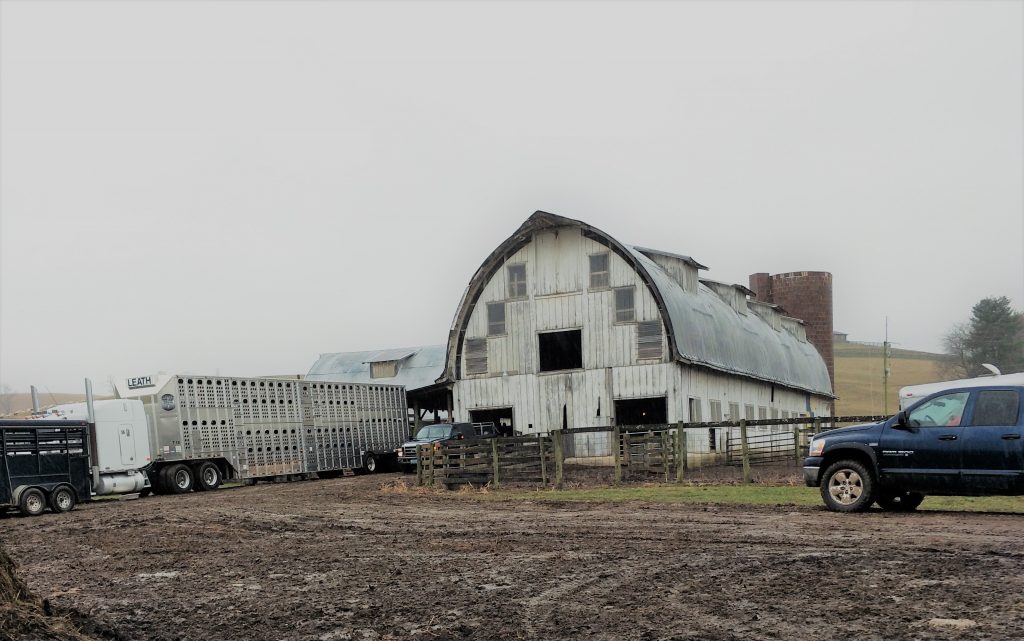
The cost to Club members:
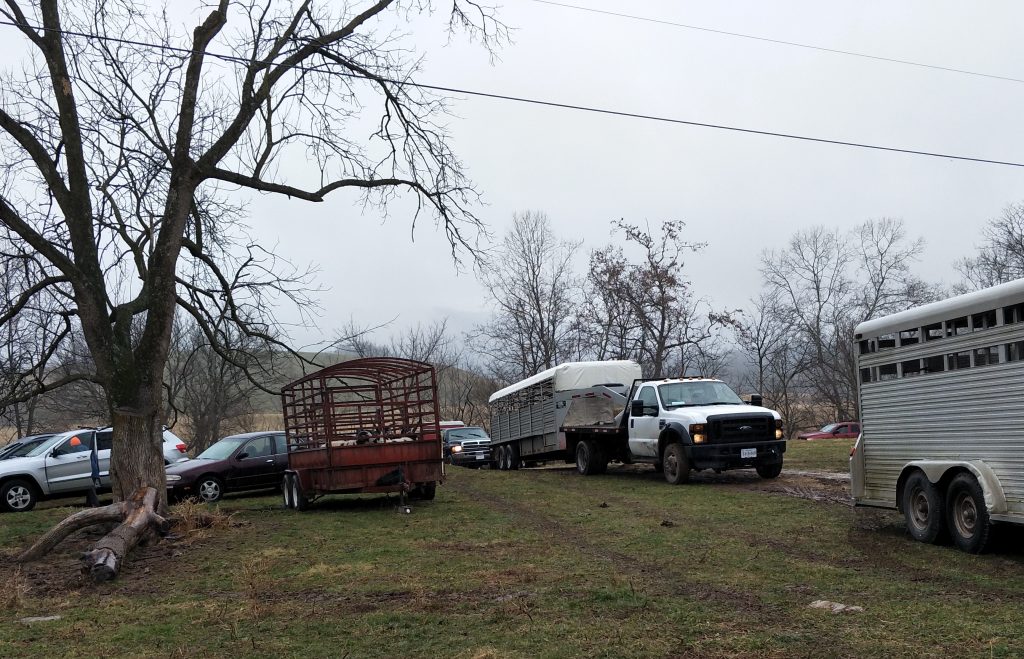
- $1 per animal plus $1 per tag (if the animal meets specifications) – to the Club and this money is used to pay for the room and board of the members that take care of the stock at the sale
- shared cost of the trucking (determined by how many animals are being shipped – usually around $4.50 per head)
- cost of selling at New Holland (usually $5 per head).
- Members also contribute feed for their animals
The Club works to also send watering buckets. Many of the watering troughs at New Holland are at cattle height and the sheep and goats have difficulty drinking from them.
The results of this effort have been very economically beneficial to members with stock bringing substantially more than they would bring locally. We’ve found that stock with the Club tags are being recognized by the buyers and are resulting in a bump of +.10 cents or more a pound.
The tags create a responsibility for the Club to ensure that we are keeping true to our word and marking prime animals and maintaining good relationships with the buyers. This means that the Club must work to educate members on how to grow and develop livestock that will meet the expectations of the buyers. We do this through repeated educational courses on livestock confirmation, nutrition, feed and maintenance (worming, etc).
The Club Brand at Other Livestock Markets: The Club is meeting with buyers at large livestock markets in Ohio and Georgia – which offer prices comparable to New Holland and much higher than our local markets. Many of these buyers are already familiar with the Club brand and are encouraging us to send tractor trailer loads to their sales.
Improving Prices by Improving Quality – Giving the Buyers What They Want: The Club cooperates with local universities, such as Virginia Tech, running a lambing/kidding school program for members and educating members on how to work with Veterinarians and be aware of drug withdrawal periods before bringing stock to sale. The Club also works with the Maryland Extension Small Ruminant program on worming, disease, and proper nutrition. The Club supports local extension agencies to conduct hay nutrition tests inform members of programs that may be of benefit. We’ll be holding a confirmation and butchering class to show members what the buyers are requesting.
The next blog post will go into more detail on how the Club supports its artisan and value-added production members. If you would like to learn more about the club in the meantime, please view our website: www.nrvsheepandgoatclub.com

